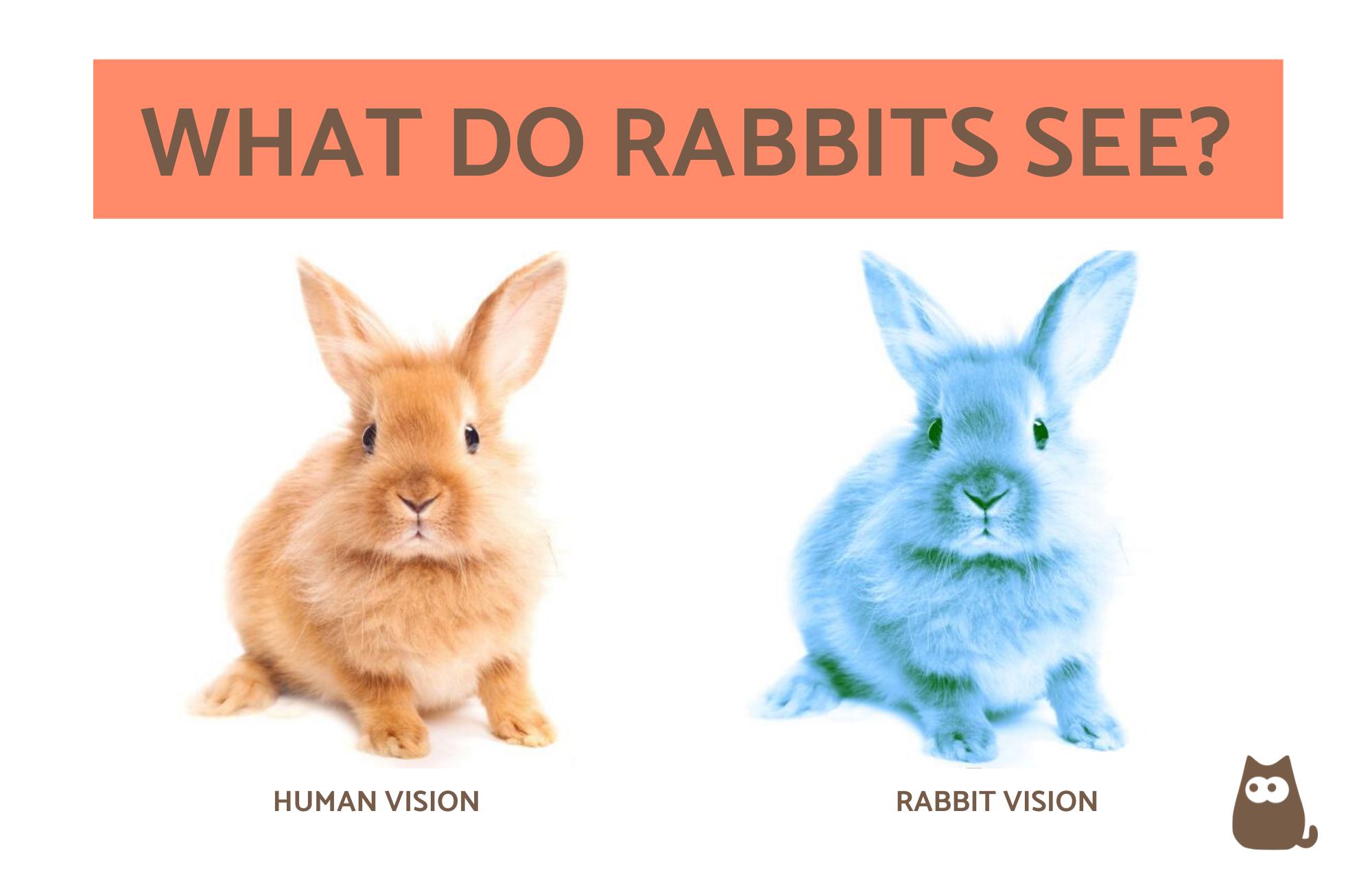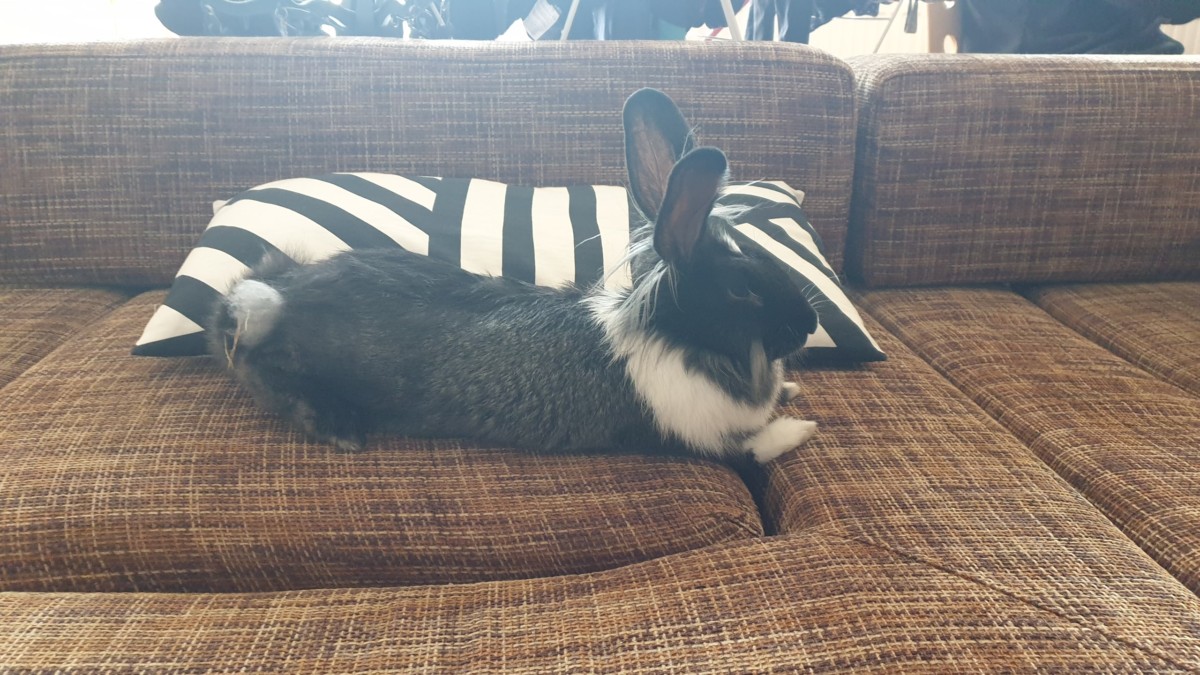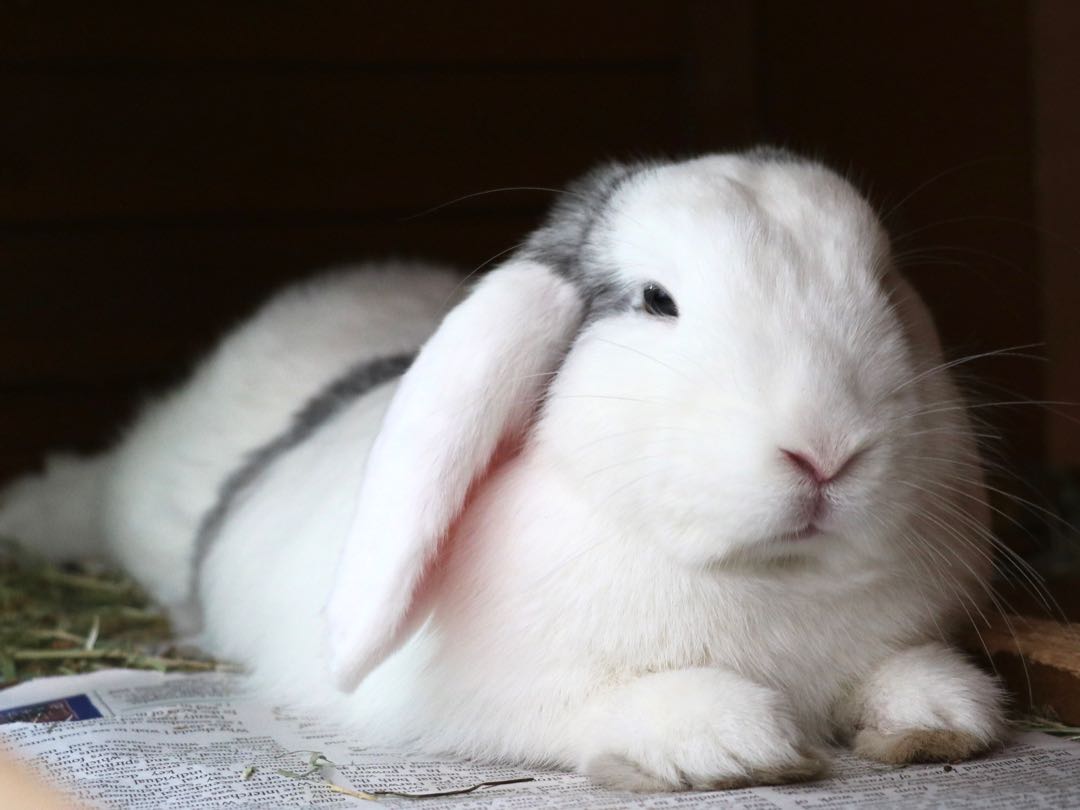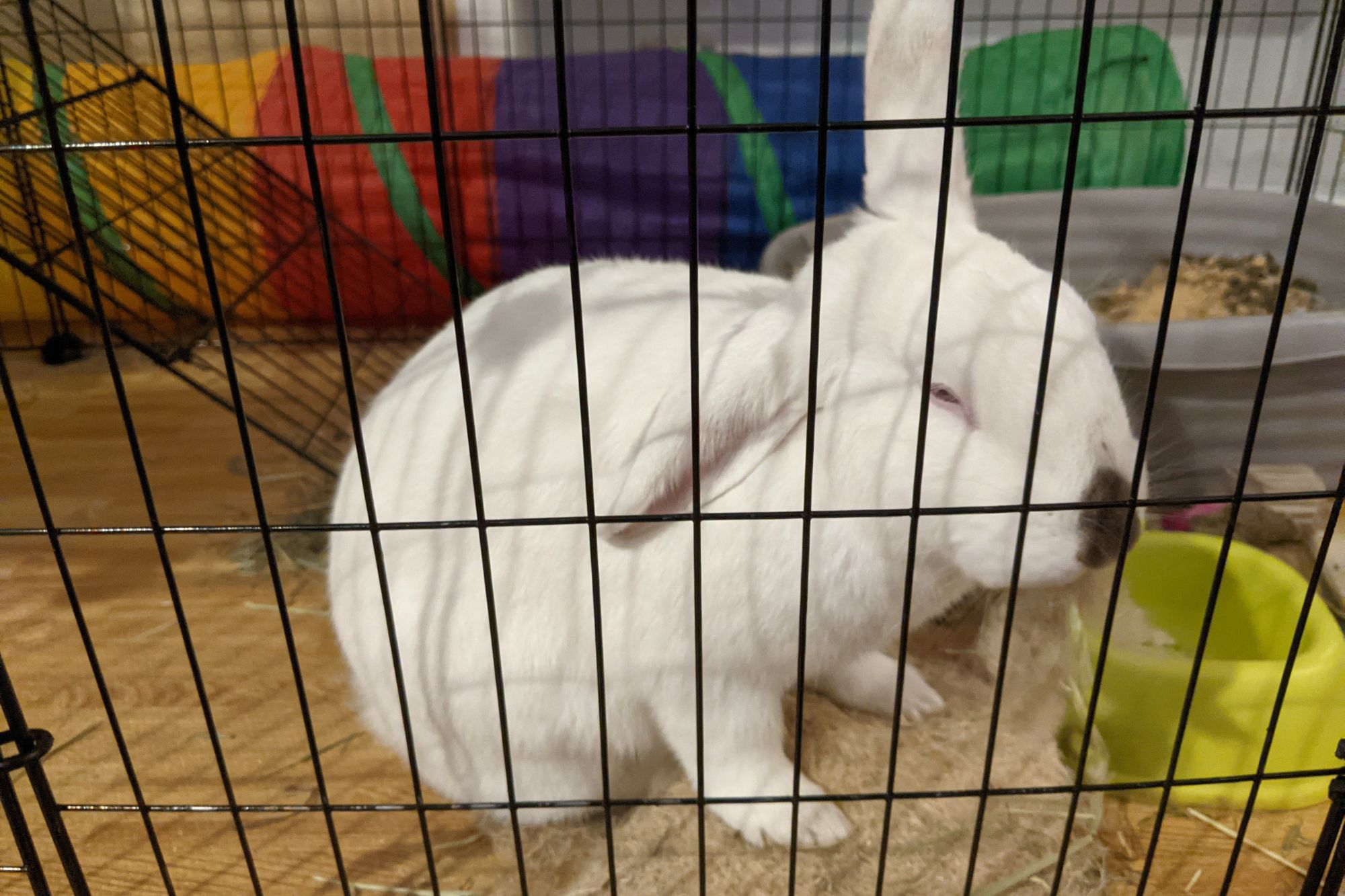Have you ever wondered if bunnies close their eyes? It’s an interesting question that goes beyond cute animal behavior. Understanding how rabbits interact with their environments is an important part of learning all about rabbits. In this article, we’ll uncover the secrets of rabbit behavior and discuss whether or not bunnies close their eyes. We’ll look at what experts have to say about this behavior and share tips on how to keep your rabbit healthy and happy. By the end of this article, you’ll have a better understanding of whether or not bunnies close their eyes and how it affects their behavior.
Do Bunnies Close Their Eyes?

Anatomy of Rabbit Eyes
Rabbits have a unique eye anatomy that is different from other animals. While their eyes are small, they are equipped with larger pupils and lenses that can capture more light and help them to see in low light conditions. Rabbits have a wide field of vision, with a range of 360 degrees, allowing them to be aware of their surroundings and detect predators.
Do Rabbits Close Their Eyes When They Sleep?
Rabbits can close their eyes when they sleep, but they do not do it all the time. In fact, rabbits tend to keep their eyes open during light sleep and only close them when they are in a deep sleep. When rabbits are in deep sleep, their eyes are closed and their ears are tucked back, which is a sign that they are in a state of rest.
How Do Rabbits Sleep?
Rabbits are crepuscular, which means they are most active in the early morning and late evening. During the day, they will spend most of their time in their nest, where they will sleep and rest. Rabbits will alternate between light and deep sleep, with periods of activity in between. During light sleep, their eyes will remain open and their ears will remain perked up. During deep sleep, their eyes will close and their ears will tuck back.
Do Bunnies Sleep with Their Eyes Open?

Anatomy of Rabbit Eyes
Rabbits have a unique eye structure compared to other animals. They have a nictitating membrane, which is a thin, transparent layer of tissue that covers the eyeball during activities like eating or grooming. This structure provides added protection to the eye and helps rabbits see in dim light.
Do Rabbits Sleep with Their Eyes Open?
Rabbits do not typically close their eyes while they sleep. Instead, they rely on their nictitating membrane to protect their eyes while they rest. Some rabbits may close their eyes while they sleep, especially when they’re feeling relaxed and comfortable. However, depending on the amount of light in the environment, rabbits may not be able to close them completely.
How Do Rabbits Sleep?
Rabbits spend most of their day sleeping. They are nocturnal creatures, which means they sleep during the day and are active at night. Rabbits typically sleep for short periods of time, either in short naps or for a few hours at a time. During these periods of rest, rabbits may close their eyes partially or not at all.
Rabbits may also change their sleeping habits depending on their environment. If they feel threatened or unsafe, they may opt to keep their eyes open while they sleep in an effort to remain alert and aware of their surroundings. This is why it’s important to create a comfortable and safe sleeping environment for your rabbit.
In conclusion, rabbits generally do not close their eyes to sleep. Instead, they rely on their nictitating membrane to keep their eyes safe and protected. However, some rabbits may close their eyes partially to get a better rest.
Do Rabbits Close Their Eyes When They Are Awake?

Rabbits are known for their large, round eyes that give them excellent vision, so it’s natural to wonder if they ever close them. The answer is yes, rabbits do close their eyes when they are awake, but it’s not as common as when they are asleep.
Anatomy of Rabbit Eyes
Rabbits have evolved to have large eyes to help them stay alert for predators. The eyes are set on either side of the head, giving the rabbit a wide field of vision. The eyes are also bugged, which means they are protuberant and can move independently of each other. This allows the rabbit to see behind them without turning their head.
Do Rabbits Close Their Eyes When They Are Awake?
Rabbits do close their eyes when they are awake, but it’s usually a sign that the rabbit is relaxed. If a rabbit is feeling stressed or scared, they will keep their eyes open and alert. Rabbits close their eyes when they are grooming themselves or when they are content and relaxed.
How Do Rabbits Behave?
Rabbits are social animals and are generally active during the day. They love to explore, play, and interact with other rabbits. When rabbits are feeling safe and secure, they will often close their eyes and nap for short periods of time.
Rabbits also close their eyes when they are sleeping. This is the time when they are most vulnerable and need to be extra cautious. When rabbits are sleeping, their eyes close completely and their breathing slows down. This helps them conserve energy and stay safe from predators.
In conclusion, rabbits do close their eyes when they are awake, but it’s usually a sign of relaxation. When they are sleeping, their eyes close completely to conserve energy and protect them from predators.
Do Bunnies Sleep with Their Eyes Open?

Do bunnies close their eyes when they sleep? This is a question that many owners of pet rabbits must have asked themselves. The answer to this question is not as straightforward as one may think. To understand the behavior of rabbits when they sleep, one must first understand the anatomy of their eyes.
Anatomy of Rabbit Eyes
Rabbits have a unique eye structure compared to other mammals. While humans and some other mammals have eyelids that close to protect their eyes, rabbits have a nictitating membrane, or third eyelid, that covers the eye. This membrane is semi-transparent, allowing the rabbit to keep its eyes open while it is still protecting them from dirt and dust.
Do Rabbits Sleep with Their Eyes Open?
Since rabbits have a nictitating membrane, they usually have their eyes open when they sleep. However, rabbits may also close their eyes when they are in a deep sleep. This is because the nictitating membrane is not as strong as a regular eyelid and can become tired. When this happens, the membrane will close over the eyes, protecting them from dirt and dust.
How Do Rabbits Sleep?
Rabbits are generally active during the day and sleep at night. However, they may also take short naps during the day. When a rabbit sleeps, it will usually lay on its side with its head tucked under its body and its legs stretched out. When a rabbit is in a deep sleep, its breathing and heart rate will slow, and it may close its eyes.
In conclusion, the answer to the question, “Do bunnies close their eyes when they sleep?” is not a straightforward yes or no. While rabbits usually have their eyes open while they sleep, they may close their eyes when they are in a deep sleep. Understanding the anatomy of a rabbit’s eyes can help to explain this behavior.
Frequently Asked Questions
How do I know if my rabbit is feeling comfortable and safe?
- Relaxed Body: A relaxed rabbit will have a loose body and ears laid back. It may stretch out, lay down, or sit up.
- Gentle Movements: If your rabbit is feeling content, it will move around in a gentle manner and occasionally groom itself to remain comfortable.
- Playful Behaviour: A rabbit that is feeling safe will show playful behavior, such as hopping around, digging, and chasing toys.
- Social Interaction: When a rabbit is feeling comfortable and safe, it will be more likely to approach and interact with its human companions.
- Calm Voice: Rabbits that are content and secure will not make loud noises and will instead communicate in a gentle and relaxed tone.
How Can I Tell if My Rabbit is Happy?
Rabbits are social animals and usually show signs of contentment when they feel safe and secure. Signs of a happy rabbit include relaxed body language, such as sitting upright with ears erect, purring and grinding their teeth, grooming themselves and interacting with you. They may also show signs of contentment by running, hopping and playing. Lastly, a happy rabbit will often show affection by pushing its head against you or nudging you with its nose.
How Often Should I Interact With My Rabbit?
- Daily – Rabbits need daily interaction. This can include petting, cuddling and playing with your rabbit.
- Weekly – Try to spend at least one hour per week playing with your rabbit. This can be a mix of activities such as playing games and giving your rabbit treats.
- Monthly – Take some time to check your rabbit’s health every month. This includes checking for any signs of disease and making sure that your rabbit is getting enough exercise.
Interacting with your rabbit is important for its mental and physical health. It helps your rabbit stay mentally stimulated and can help it bond with you. Make sure to spend quality time with your rabbit every day and have fun activities that you can do together.
What Type of Food is Appropriate for a Rabbit?
Rabbits are primarily herbivores, meaning they should feed on vegetables, hay, and other plant-based foods. Leafy greens, root vegetables, and herbs are all suitable, as well as hay and grass. However, it is important to keep in mind that some vegetables, such as potatoes, tomatoes, and peppers, can be toxic to rabbits. It is also important to provide a balanced diet by offering vitamins and minerals as well as clean, fresh water every day.
What should I do if my Rabbit is exhibiting aggressive behavior?
- Identify the cause of aggression – Aggressive behavior can be caused by a variety of factors, including fear, territoriality, pain, or even boredom. It’s important to identify what’s causing the aggression in order to treat it properly.
- Provide a safe environment – Rabbits need an environment that is free from stress and provides enough space for them to move around. This includes a safe, comfortable living area and plenty of toys and activities that keep them entertained.
- Introduce a companion – If your rabbit is the only one in the house, it may be lonely and exhibit aggressive behavior. Introducing a companion can help reduce this aggression by providing your rabbit with companionship.
- Train your rabbit – Training can help teach your rabbit how to behave properly and can be an effective way to reduce aggression. Start with basic commands such as “sit” and “come” and gradually build up to more complex commands.
- Seek professional help – If the aggression is too severe, it is best to seek the help of a professional. A veterinarian or animal behaviorist can help you identify the underlying cause of aggression and provide you with the necessary tools to help your rabbit.
Conclusion
Rabbits are fascinating creatures that are full of surprises. While some of their behaviors are easy to observe, others remain a mystery. Bunnies do close their eyes, usually when they are sleeping or feeling relaxed. This behavior is part of their natural instincts, which can be further studied by observing their behavior and body language. Understanding how rabbits operate can enable owners to provide the best care for their pets, ensuring their safety and comfort.
